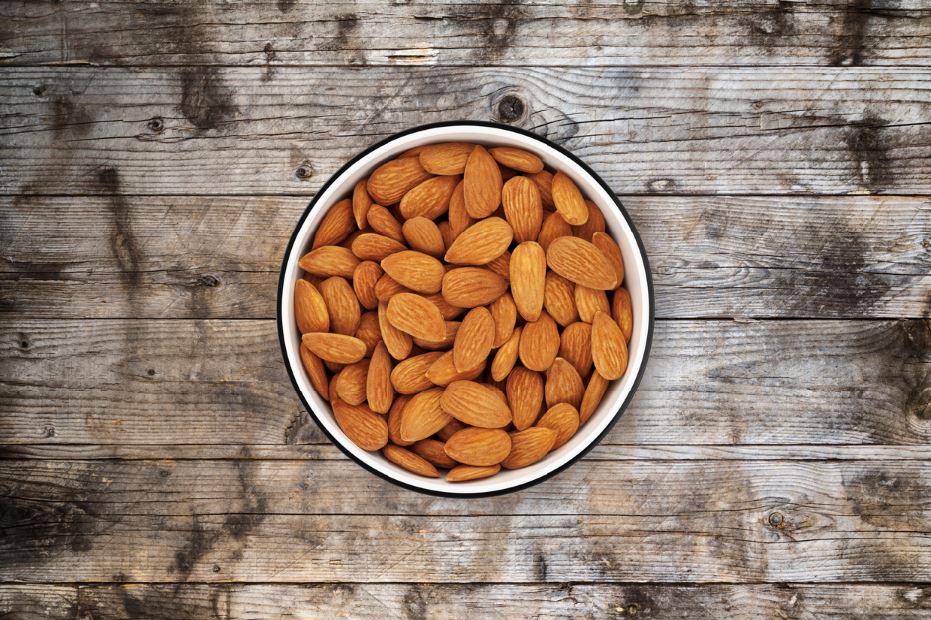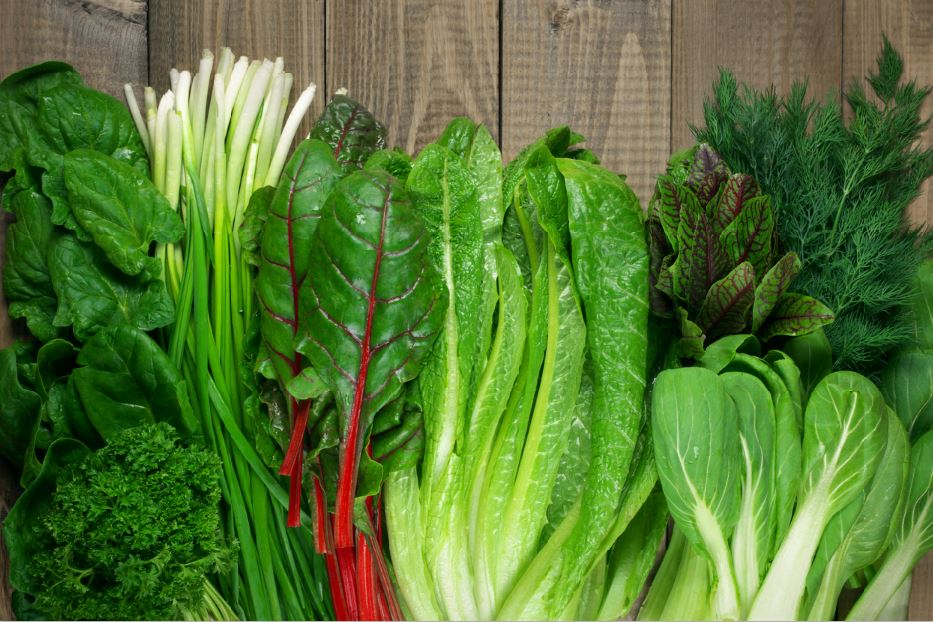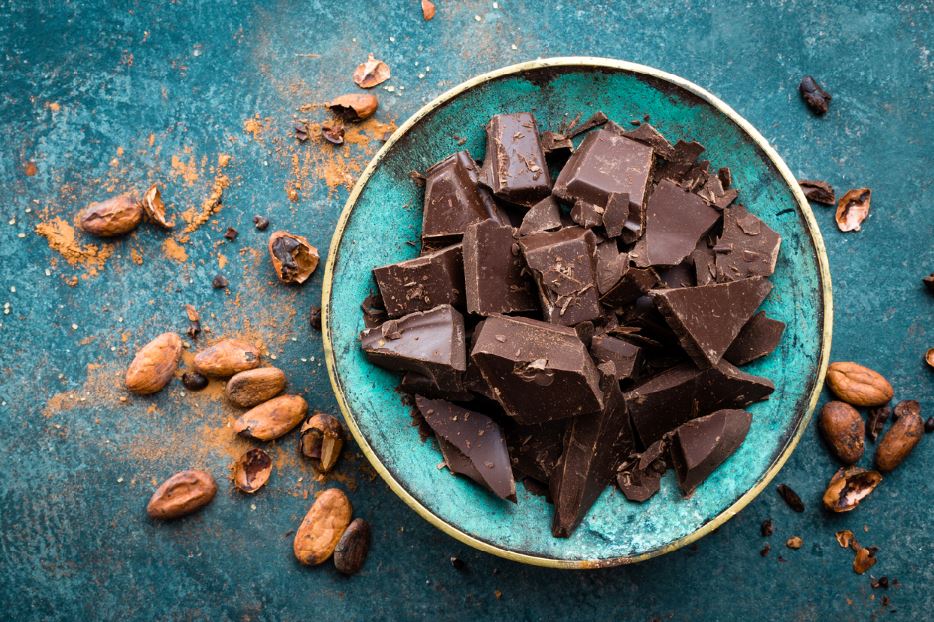Are you feeling more stressed out than usual? For Stress Awareness Week, Health Coach and Mindfulness Teacher Louise Murray reveals 12 stress-reducing foods that may help you to stress a little less and live a little more
It’s safe to say Britons may have started this week slightly more stressed-out than usual, given the Prime Minister’s Lockdown 2.0 announcement on Saturday evening – which is ironic considering it’s Stress Awareness Week…
Prime Minister Boris Johnson has announced a second national lockdown for England that will start on Thursday 5th of November, in order to prevent a ‘medical and moral disaster’ for the NHS.
This means that once again, pubs, restaurants, gyms and non-essential shops will have to close for four weeks from Thursday till the 2nd December, when restrictions would be eased and regions would go back into the tiered system.
But unlike the restrictions back in the spring (Lockdown 1.0), schools, colleges and universities will stay open.
Other than worrying about Covid-19, if you are prone to over-scheduling, people pleasing and trying to be all things to all people – you may end up feeling overwhelmed, run down, exhausted and stressed out.
So what can you do to break the stress cycle? The best approach is one that takes into account your whole self; your mind, body and soul.
To do this you need to nourish yourself ON the plate by choosing the correct foods to help support stress reduction; but you also need to nourish yourself OFF the plate with stress reducing self-care practices.
There really is such a thing as mood food
What you eat has the power to influence your hormones and your neurotransmitters, which control how you feel and has the power to help ease your stress or increase it.
There really is such a thing as mood food, sometimes we’re in a bad mood for no explicable reason; we might feel tired, sluggish, uninspired, down on ourselves and sad. Other times we feel light and easy.
Your mood is really affected by what you put into your body – by the foods you choose to eat or not eat.
Life happens, and there will always be things that are stressful, but you can give yourself the best possible change of remaining in a positive food by changing how you nourish your body.
So lets look at how we can use food to nourish your mind and stress less.
Consume less:
Caffeine
Caffeine blocks your production of GABA – nature’s Valium which is responsible for our feelings of calmness and happiness. Caffeine is also a stressor that can cause your hormone adrenaline to spike, as it’s levels come back down again it causes cortisol to spike – the stress hormone.
Basically, caffeine exaggerates your stress response and reactions. So if you want to try and minimise anxiety, stress, feeling down or negative thoughts then try swapping out coffee with alternative energy boosting drinks like blue majik latte, beetroot latte, or turmeric latte.
Refined sugar
Unprocessed sugar (natural, unrefined, raw honey, fruits, veg) contains vitamins, enzymes, proteins and minerals. Refined sugar is very different. It lacks vitamins, minerals, and fibre and thus requires extra effort from the body to digest.
It also enters swiftly into the bloodstream and wreaks havoc on blood sugar levels, first pushing them sky-high, causing excitability, nervous tension, and hyperactivity, and then dropping them extremely low , causing fatigue, depression, weariness and exhaustion.
Refined sugar is very different. It lacks vitamins, minerals, and fibre
Health-conscious people are aware that their blood sugar levels fluctuate wildly on a sugar-induced high, but they often don’t realize the emotional roller-coaster ride that accompanies this high.
We feel happy and energetic for a while, and then suddenly, inexplicably, we find ourselves arguing with a friend or have less patience with our children, we crash in energy and mood and we lose our ability to deal with stress and stressful situations well.
When you eat things like refined sugar and coffee it increases inflammation and stress hormone production. Other foods however, have the power to help induce calmness.
Consume more:
#1 Magnesium – almonds
Natures chill pill, magnesium supresses stress hormones and also blocks the entrance of stress hormones to the brain too.
The problem is that many of us don’t get enough of it in our diets and on top of this, our lifestyles deplete what little we do get; stress, alcohol, caffeine, soft drinks and antibiotics all deplete magnesium.
Boost your magnesium levels by packing your diet with plenty of leafy greens, nuts and seeds (especially cashews, brazil nuts, almonds, sunflower seeds), cacao, avocado, banana, quinoa, brown rice and oats.
#2 Adaptogens
Adaptogens are really magical as they work to bring your body back into balance. Rather than the fake energy surges of caffeine or sugar, adaptogens improve the health of the adrenal system, the system in charge of managing your body’s response to stress.
Adaptogens help your body better cope with stress by modulating the release of stress hormones from the adrenal glands. If you feel overwhelmed and anxious they can calm you and ground you.
If you feel run down and worn out, they can give you energy to get you back on your feet and able to tackle your day again.
Adaptogens help your body better cope with stress by modulating the release of stress hormones
When it feels like life is coming at you at 200 miles an hour, they can be the trick up your sleeve to help regulate cortisol, and help keep you level-headed and calm when under pressure.
They also help you rest and sleep better which is key for adrenal fatigue. My favourites for regulating stress are ashwaganda, maca, rhodiola and reishi.
#3 Cacao – cacao powder
Cacao is a pure form of chocolate that comes very close to the raw and natural state in which it is harvested. Cacao also contains phenylethylamine (PEA), associated with elevated mood.
It is one of the plant foods with the highest content of magnesium, the mineral responsible for helping us sleep well and handle stress better.
#4 Leafy greens – spinach
Green leafy vegetables like spinach contain folate, which produces dopamine, a pleasure-inducing brain chemical, helping you keep calm.
#5 Omega-3 – salmon
Stress can ratchet up levels of anxiety hormones, such as adrenaline and cortisol.
Omega-3 fatty acids (found in foods like salmon, chia seeds, flax) have anti-inflammatory properties that may help counteract the negative effects of stress hormones.
#6 Blueberries
When you’re stressed, there’s a battle being fought inside you. The antioxidants and phytonutrients found in berries fight in your defence, helping improve your body’s response to stress.
#7 Nuts & Seeds
Flaxseed, pumpkin seeds, and sunflower seeds are all great sources of magnesium plus certain nuts and seeds are also high in tryptophan, an amino acid responsible for producing mood-boosting serotonin; walnuts, pumpkin seeds and sunflower seeds are all good sources.
#8 Dark chocolate
A regular healthy indulgence of dark chocolate might have the power to regulate your stress levels. Research has shown that it can reduce your stress hormones, including cortisol.
Also, the antioxidants in cocoa trigger the walls of your blood vessels to relax, lowering blood pressure and improving circulation.
Finally, dark chocolate contains unique natural substances that create a sense of euphoria similar to the feeling of being in love. Go for varieties that contain at least 70% cocoa.
#9 Bananas
The banana is high in vitamin B6, which helps produce feel-good neurotransmitters like dopamine and serotonin.
Bananas also have a great fibre content, so the sugar from them is released slowly into your bloodstream, allowing for stable blood sugar levels and better mood control.
Blood sugar levels that are too low or too high may lead to irritability and mood swings so fibre is key for keeping sugar, and therefore mood stable.
helps produce feel-good neurotransmitters like dopamine and serotonin
Finally, when still showing a little green on the peel, bananas are an excellent source of prebiotics, a type of fibre that helps feed healthy bacteria in your gut and a robust gut microbiome is associated with lower rates of mood disorders.
#10 Oats
An excellent source of fibre, oats allow for a gradual release of sugar into the bloodstream, which is important for controlling mood swings and irritability.
#11 Turmeric
Recent studies have linked it to reducing stress and depression due to its role in fighting inflammation in the body, and elevating neurotransmitters such as serotonin.
#12 Fermented foods
Since up to 90% of your body’s serotonin, your happy hormone, is produced in your gut, a healthy gut may correspond to a good mood.
Fermented foods like kimchi, yogurt, kefir, kombucha, and sauerkraut are rich in probiotics that support gut health and mood. In addition, the gut microbiome plays a role in brain health.
Research is beginning to show a connection between healthy gut bacteria and lower rates of depression.
Louise Murray is a Holistic Health Coach with the qualification from the Institute of Integrative Nutrition and a Mindfulness Teacher.
She takes a truly holistic approach to health and wellness by nourishing people ON and OFF the plate by coaching them with nutrition advice combined with lifestyle and behaviour change, healthy habit formation, mindset tools, mindfulness and self-care practices
Follow Louise on Instagram: @live_well_with_lou
Relevant Healthista Content:
5 healthy recipes to help balance your hormones
Are your hormones making you bloated?
11 everyday things that damage your hormones
4 hormones that help you lose weight from exercise – Body Transformation Week 10
Healthista Content you may also like:
Save the Planet: 12 climate-friendly food swaps you can make today
How to be happier: 5 tips this happiness guru wants you to know about
Like this article? Sign up to our newsletter to get more articles like this delivered straight to your inbox.


























































